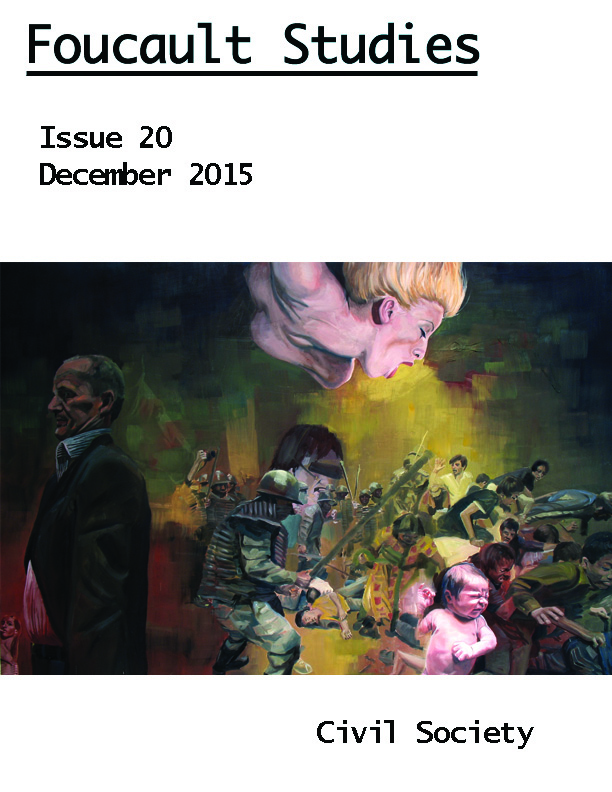Foucault’s On the Government of the Living
DOI:
https://doi.org/10.22439/fs.v0i0.4941Keywords:
Self-disclosure, conversion, repentence, Metanoia, PaenitentiaAbstract
In The Government of the Living, Foucault demonstrates elegantly and convincingly the emergence of a new idea and practice of penitence within the early Church, one that traced its origins to the Bible but in fact represented a departure from earlier Christian beliefs. This shift occurred largely under the influence of monastic and ascetic tendencies that came to play an increasingly powerful role in the second and third centuries after Christ. I suggest that this is the fundamental contribution of the lectures, rather than the framing narrative concerning truth and power. In my comments, I focus on the ideas of conversion, change of heart, remorse, and repentance, and show how the classical Greek and Latin terms for a change of mind (metanoia, paenitentia) assume meanings as widely different as “conversion” and “penitence.” This semantic slide or instability mirrors and enables the reinterpretation of Biblical faith as penitence. I also discuss the relationship between self-disclosure, as the classical writers understood it, and confession, and relate this to a new conception of the inviolable self.Downloads
Published
2015-12-19
How to Cite
Konstan, D. (2015). Foucault’s On the Government of the Living. Foucault Studies, (20), 266–276. https://doi.org/10.22439/fs.v0i0.4941
Issue
Section
Review Symposium
License
Authors retain copyright to their work, but assign the right of the first publication to Foucault Studies. The work is subject to a CC BY-NC-ND 4.0 license, but despite these restrictions, authors can take for granted that Foucault Studies will permit articles published in Foucault Studies to be translated or reprinted in another format such as a book providing a full reference is made to Foucault Studies as the original place of publication.



